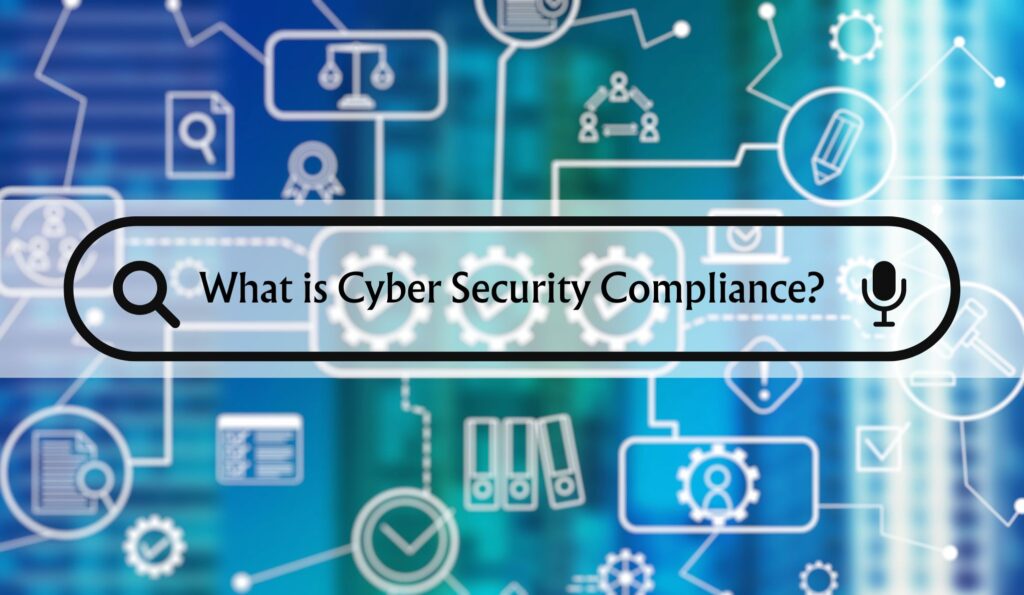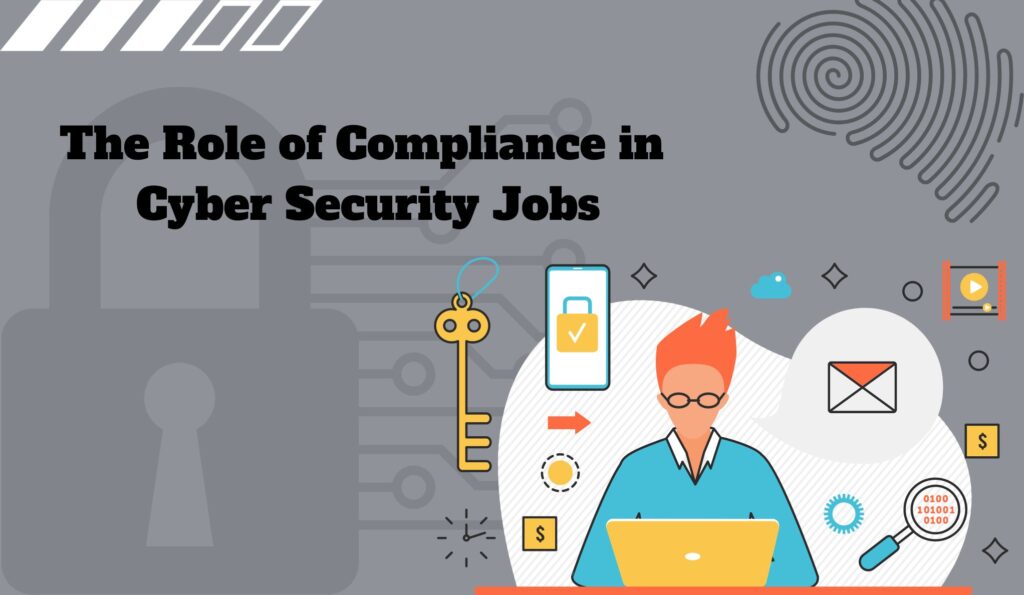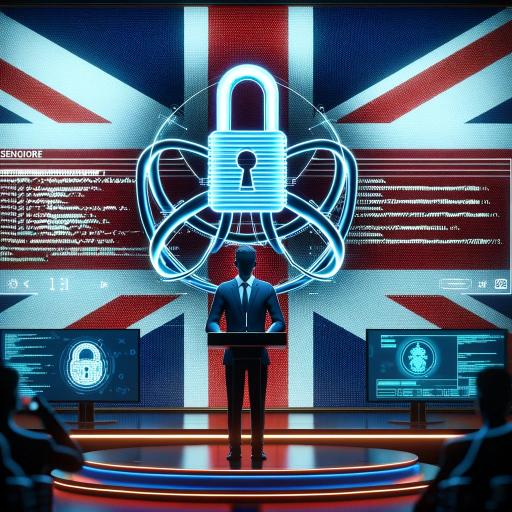In the digital age, where data breaches and cyber-attacks are increasingly common, the role of cyber security compliance has never been more critical. This guide sheds light on the importance of compliance in safeguarding data and ensuring that organizations adhere to legal and ethical standards.
What is Cyber Security Compliance?
Cyber security compliance involves adhering to laws, regulations, and guidelines designed to protect data and information systems. In an era marked by technological advancements and increasing cyber threats, compliance is not just a legal requirement but a vital component of a robust security strategy. It serves as a framework for organizations to manage risks, protect customer data, and avoid costly legal penalties.
The Legal Implications
Legal implications of non-compliance can be severe, ranging from hefty fines to reputational damage. Laws like GDPR and HIPAA impose strict guidelines on data protection and privacy, making compliance essential for businesses operating in or handling data from regulated regions.
The Role in Risk Management
Compliance plays a crucial role in risk management. By following established standards and protocols, organizations can effectively identify and mitigate potential security threats. This proactive approach not only secures data but also fosters trust among customers and stakeholders.
Understanding Cyber Security Compliance
Cyber security compliance is more than a set of rules; it’s a critical aspect of modern business practice. In this era of digital information and widespread internet use, safeguarding data against cyber threats is not just a technical issue but also a legal and ethical one. Compliance involves adhering to laws, guidelines, and standards designed to protect information and infrastructure from cyber attacks and data breaches. It’s about ensuring that an organization’s practices align with both industry norms and legal requirements, providing a secure environment for both business operations and customer data.
What is Cyber Security Compliance?

Cyber security compliance refers to the process of adhering to a set of prescribed rules and regulations established by government bodies, industry groups, or internal policies. These rules are designed to protect information assets from threats and vulnerabilities in the digital world. Compliance includes implementing specific security measures, undergoing regular audits, and ensuring continuous monitoring and updating of security protocols. It’s a dynamic process that requires ongoing attention and adaptation to new threats and changes in the regulatory environment.
The Evolution of Compliance in Cybersecurity
The landscape of cyber security compliance has evolved significantly over the years. Initially, compliance was seen as a mere checkbox exercise — something businesses did to meet the minimum legal requirements. However, with the increasing frequency and sophistication of cyber attacks, the importance of compliance has grown. Today, it represents a comprehensive approach to securing data and systems. This evolution has seen the introduction of more stringent and complex regulations like GDPR and HIPAA, which not only demand greater accountability but also impose heavier penalties for non-compliance. The evolution of compliance reflects a deeper understanding of the cyber threat landscape and a stronger commitment to protecting sensitive data in all sectors.
Major Regulations and Standards in Cyber Security Compliance
Navigating through the landscape of cyber security compliance involves understanding various key regulations and standards. These regulations, varying in their scope and focus, provide a framework for organizations to protect their data and systems. Adhering to these standards is not just about legal necessity; it’s about demonstrating a commitment to robust cyber security practices.
GDPR and Its Impact on Compliance
The General Data Protection Regulation (GDPR), implemented by the European Union, has set a new benchmark in data protection and privacy laws. It applies to all organizations operating within the EU and those outside the EU that process data of EU residents. GDPR emphasizes transparency, security, and accountability in data handling, requiring businesses to implement stringent data protection measures. The impact of GDPR is global, as it affects any business with international operations or customers in the EU. Non-compliance can result in significant fines, making it a critical regulation for businesses worldwide.
HIPAA Compliance in Cyber Security
The Health Insurance Portability and Accountability Act (HIPAA) is a key regulation in the United States healthcare sector. It provides guidelines for the secure handling of protected health information (PHI). HIPAA compliance involves ensuring the confidentiality, integrity, and availability of PHI, which includes implementing safeguards like access controls, encryption, and regular risk assessments. For healthcare providers, insurers, and related businesses, HIPAA compliance is essential for protecting patient data and avoiding severe penalties.
NERC and Energy Sector Compliance
The North American Electric Reliability Corporation (NERC) sets standards for ensuring the reliability and security of the electric grid in North America. NERC’s Critical Infrastructure Protection (CIP) standards focus on the cyber security of the energy sector’s critical infrastructures. These standards require entities to identify and protect Critical Cyber Assets, have robust security management controls, and be prepared for incident response and recovery. Compliance with NERC CIP is vital for preventing disruptions and ensuring the resilience of the energy infrastructure.
PCI DSS for Financial Data Protection
The Payment Card Industry Data Security Standard (PCI DSS) is crucial for organizations handling credit and debit card transactions. It is designed to ensure that all companies that process, store, or transmit credit card information maintain a secure environment. PCI DSS compliance involves adhering to a set of requirements such as maintaining a secure network, protecting cardholder data, managing vulnerabilities, and implementing strong access control measures. Compliance helps prevent financial fraud and protects both the business and its customers from data breaches.
Cyber Security Compliance in Different Industries
Cyber security compliance is not a one-size-fits-all concept; it varies significantly across different industries. Each sector faces unique challenges and threats, necessitating tailored compliance strategies. Understanding these industry-specific compliance requirements is crucial for businesses to effectively protect sensitive data and meet regulatory standards.
Compliance in Healthcare: HIPAA in Focus
In the healthcare industry, compliance primarily revolves around HIPAA regulations. These regulations ensure the protection and confidentiality of patient health information. Healthcare providers, insurers, and any business handling patient data must implement robust security measures to prevent data breaches. This includes encrypting patient records, controlling access to sensitive information, and conducting regular security audits. The stakes are high in healthcare, as data breaches not only lead to legal repercussions but can also endanger patient safety.
Financial Sector Compliance: GLBA and More
The financial sector is governed by several regulations, with the Gramm-Leach-Bliley Act (GLBA) being a prominent one. GLBA requires financial institutions to protect the confidentiality and integrity of consumer financial information. This sector faces the challenge of safeguarding vast amounts of sensitive financial data while maintaining service efficiency. Compliance involves implementing advanced cybersecurity measures, regular risk assessments, and ensuring transparency in data handling practices. Additionally, institutions must stay vigilant against evolving cyber threats like phishing and ransomware attacks.
Compliance Challenges in the Tech Industry
The technology industry, while at the forefront of innovation, faces its own set of compliance challenges. The rapid pace of technological advancements often outstrips existing regulations, creating a dynamic compliance environment. Tech companies must navigate a complex web of data protection laws, such as GDPR for businesses operating in the EU, and varying standards across different countries. The key challenge is to integrate robust security measures into products and services without hindering innovation and growth. This includes addressing concerns like data privacy, intellectual property rights, and user data management.
The Role of Compliance in Cyber Security Jobs

The evolving landscape of cyber security has led to a growing demand for professionals specializing in compliance. Careers in this field are not just about understanding the technical aspects of cyber security but also about grasping the legal and regulatory frameworks. Professionals in this domain play a crucial role in helping organizations navigate the complex waters of cyber security laws and standards, ensuring both security and legal compliance.
Career Paths: Compliance Analyst and Advisor
Two prominent career paths in this sector are the Compliance Analyst and Compliance Advisor. A Compliance Analyst is responsible for assessing and ensuring that an organization adheres to external regulatory requirements and internal policies. They conduct audits, manage risk assessments, and recommend improvements. A Compliance Advisor, on the other hand, typically works more closely with policy development and implementation, providing strategic advice to organizations on compliance matters. Both roles require a deep understanding of regulations like GDPR, HIPAA, or PCI DSS, depending on the industry.
Skills and Qualifications for Compliance Roles
To excel in compliance roles, individuals need a blend of technical and soft skills. Essential skills include a strong understanding of cyber security principles, knowledge of relevant laws and regulations, risk assessment capabilities, and attention to detail. Qualifications can vary, but a background in cyber security, law, or IT is beneficial. Professional certifications such as Certified Information Systems Security Professional (CISSP) or Certified Information Security Manager (CISM) can enhance a candidate’s profile.
Salary Expectations in Compliance Careers
Salaries in cyber security compliance roles can be quite rewarding, reflecting the importance and demand for these positions. While the salary range varies based on factors like location, experience, and industry, Compliance Analysts and Advisors can expect competitive compensation. Entry-level positions might start with a modest salary, but with experience and additional qualifications, professionals can see significant growth in their earnings.
Implementing Cyber Security Compliance
Implementing cyber security compliance effectively is a critical step for businesses to protect themselves against cyber threats and legal repercussions. It involves a series of strategic actions to ensure that an organization’s security policies and processes meet specific regulatory and legal standards. This implementation is not just a one-time task but an ongoing process that needs regular updates and reviews to keep pace with evolving cyber threats and changing regulations.
Steps for Effective Compliance Management
Effective compliance management starts with a clear understanding of the applicable regulations. The first step is to conduct a thorough assessment of the current security posture and policies against these regulations. This is followed by identifying the gaps and developing a plan to address them. Training employees on compliance standards and security best practices is also crucial, as human error can often lead to data breaches. Regular audits and assessments are necessary to ensure ongoing compliance and to make adjustments as needed.
Cyber Security Compliance Checklist
A comprehensive compliance checklist is an invaluable tool for organizations. It should include key elements such as:
- Regular risk assessments and audits.
- Ensuring up-to-date data encryption and security measures.
- Implementing access control and user authentication protocols.
- Developing and enforcing data protection policies.
- Regularly updating and patching software and systems.
- Employee training on cyber security best practices and compliance.
- This checklist serves as a roadmap for organizations to follow, ensuring that all critical aspects of compliance are addressed.
Compliance Tools and Software Solutions
Numerous tools and software solutions are available to assist with cyber security compliance. These tools help automate many aspects of compliance management, such as continuous monitoring, risk assessment, and reporting. They can provide real-time insights into an organization’s security posture, making it easier to identify and rectify any compliance issues. Selecting the right tools depends on the specific needs of the organization, the regulations they need to comply with, and the complexity of their IT environment.
Global Compliance: Navigating International Regulations
In our interconnected world, cyber security compliance is not confined to national boundaries. Global compliance is about understanding and adhering to a complex web of international regulations. For businesses operating across borders, this means being aware of and compliant with the laws and standards of each country in which they operate. This requires a nuanced approach, as regulations can vary significantly from one region to another, reflecting different legal frameworks and cultural attitudes towards data privacy and security.
Understanding Compliance in Different Regions
Compliance requirements can vary widely across different regions. For instance, the European Union’s GDPR sets stringent standards for data protection, while the United States has a more sector-specific approach with regulations like HIPAA for healthcare and GLBA for finance. In Asia, countries like Japan and South Korea have their own unique sets of data protection laws. Businesses must understand these regional differences and adapt their compliance strategies accordingly. This often involves setting up specialized legal and compliance teams to handle region-specific requirements.
Challenges in Global Cyber Security Compliance
Navigating global cyber security compliance presents several challenges. One of the biggest is keeping up-to-date with the rapidly changing regulatory landscape across different countries. This is compounded by the need to harmonize compliance efforts across various jurisdictions, which often have conflicting requirements. Additionally, there is the challenge of implementing consistent security measures across all operations while respecting regional differences. Effective communication and coordination across international teams are key to overcoming these challenges and ensuring global compliance.
Conclusion
Cyber security compliance is not just a legal necessity; it’s a crucial part of a secure and trustworthy business environment. This guide has highlighted the essentials of compliance across various industries and global landscapes, underscoring the need for ongoing adaptation and proactive security measures.
For businesses, embracing compliance is key to safeguarding against cyber threats, maintaining customer trust, and ensuring longevity in the digital world. The future of business is inextricably linked to robust cyber security practices, making compliance an indispensable aspect of operational strategy.
In summary, staying informed and adaptable in the face of evolving cyber security challenges is essential for any organization committed to maintaining a secure and compliant operational framework.








